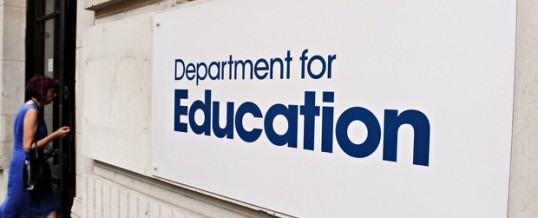By Gavin Mackintosh-
The Department Of Education abandoned efforts to narrow the attainment gap between disadvantaged pupils and their better-off peers since 2015, its former top civil servant has claimed.
Jonathan Slater, who served as permanent secretary at the DfE from 2016 until last year, said until the Covid-19 pandemic struck, the department of education’s ’“main effort” in recent years was on completing its academies reforms.
Slater’s comments came during a discussion with other former civil servants and special advisers at the Foundation for Education Development summit on Wednesday morning.
He said that although expanding the academies programme had also been a priority between 2010 to 2015, there was also a “parallel effort to try and reduce the attainment gap”. Slater confirmed that both efforts “achieved results”.
“There was a huge increase in the number of academies, and there was a significant reduction in the attainment gap between 2010 and 2015,” he said
However, after 2015, the focus on the attainment gap diminished, he said.
“I don’t think there was anything like the focus inside the department on that question post-2015. I don’t think it was the main focus anymore, and I think it’s probably not a coincidence that the attainment gap stopped falling.”
Disadvantaged pupils are often at a disadvantage compared to their well off peers for many reasons. Limited funds of poor families makes it difficult for their children to obtain good quality tuition to assist their education, or attend private schools which is often too expensive for their parents to afford.
In many cases, school pupils are unable to afford laptops or even basic internet services which can enable them to broaden their learning.
However, ongoing research by The Eye Of Media.Com suggests that a number of disadvantaged families who have purchased laptops for their children and have internet access, lack the motivation to encourage their children to expand their minds through reading, especially during the lockdown.
Efforts to limit the attainment gap between pupils from poor backgrounds and those from better off backgrounds, are important, but parents from disadvantaged backgrounds also have a role to play in influencing their children to maximise their academic development.
A study by the National Foundation for Educational Research (NFER), based on interviews with more than 3,000 teachers and heads at more than 2,000 schools, revealed that disadvantaged and black and minority ethnic (BAME) children had gone backwards compared with their better-off peers since March.
Teachers say the average learning lost was three months for all pupils, yet more than half of pupils at schools in the most deprived areas lost four months or more, compared with just 15% of those in the least deprived areas.
A mere 1% of pupils in the wealthiest areas were estimated to have lost six months in effective learning to the lockdown, pupils in the poorest areas more than 10 times as many were affected as badly, the researchers said.
It also found that nearly half of all pupils need intensive catch-up support to make up lost ground. And boys appeared to have been left worse off and further behind than girls, on average.

